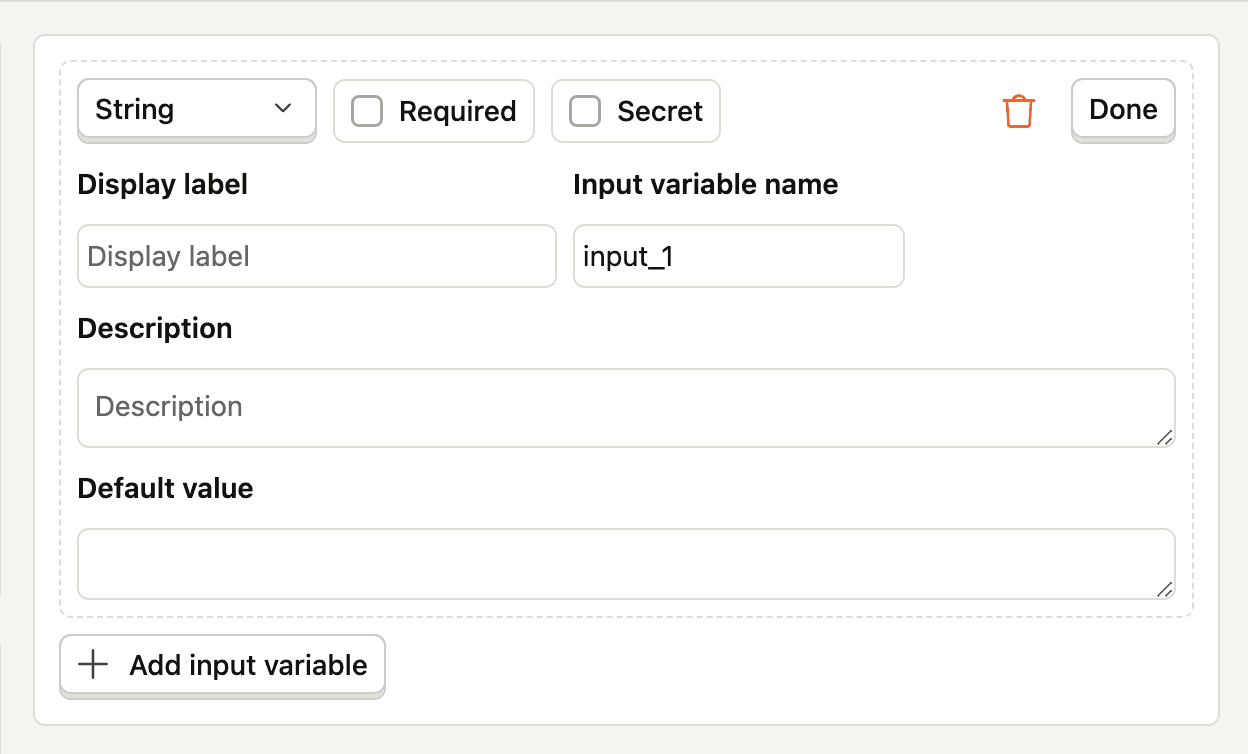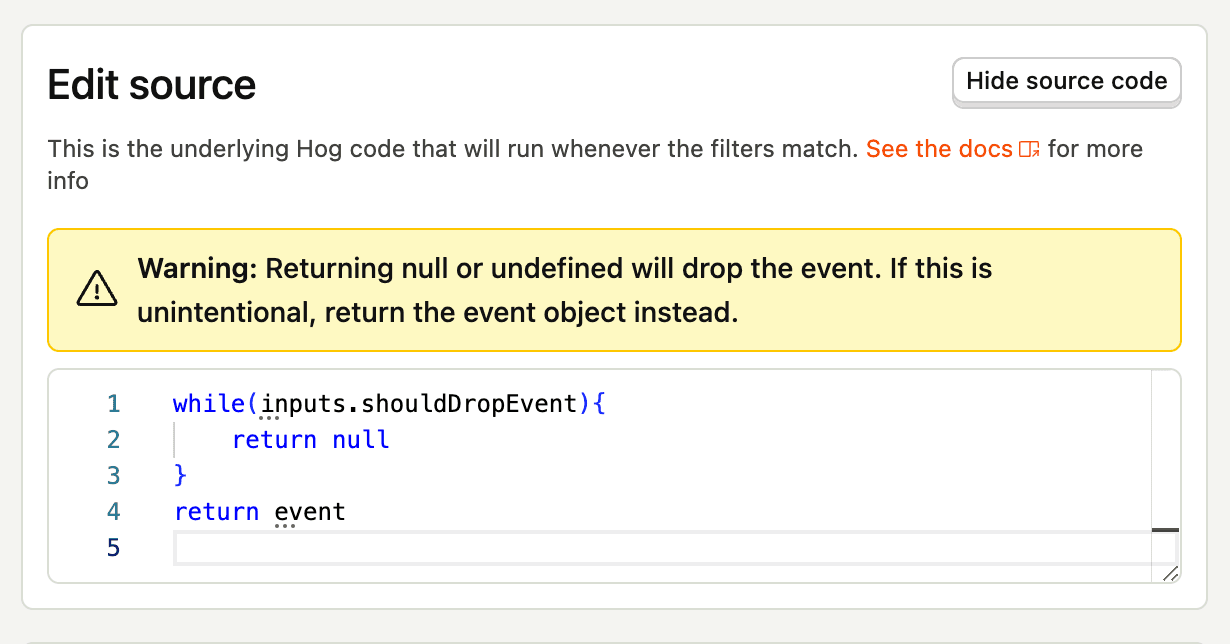Customizing transformations
Contents
We've got a great library to get you started with the most common transformation needs. If you want to go further, you can write your own using our Hog programming language.
Event object
During ingestion, transformations only have access to the event object. Here's the structure of the event object available in transformations:
Modifying transformations with Hog
For most cases, we recommend using one of the pre-built transformations. These take care of most logic under the hood, exposing simple inputs for you to configure.
You can also use any of these transformations as a starting point for your own code by clicking edit source code. From here you can modify the inputs – for example marking an input as secret so that it is encrypted at rest – or changing the implementation of the transformation itself.

Since transformations happen during ingestion, they cannot make external HTTP calls. Instead, they focus on modifying the event object directly.
Writing custom Hog transformations
A transformation in PostHog receives an event object as input and should return a modified version of that event (or null to drop the event).
Here's a basic transformation template:
Important: Returning
nullwill completely drop the event from further processing. Be extremely careful with this as the event will be permanently lost.
Working with the event object
The event object is a global that cannot be modified directly. Instead, you need to:
- Create a copy of the event
- Modify the copy
- Return the modified copy
Here's the pattern:
Returning event without modification will simply pass the original event through unchanged.
Debugging with print statements
Use print() statements to debug your transformations. These logs will appear in the Logs tab of your Hog function:
This is extremely helpful for understanding what data you're working with and verifying your transformation logic.
Accessing inputs
You can add inputs to your transformation. You can access them through the inputs object. In the default transformation, inputs are named sequentially:
Testing your transformation
You can test your transformation in the testing section with:
- Our example event (pre-populated)
- A real event from your instance (randomly selected)
- Your own custom event JSON
This allows you to verify your transformation works correctly before enabling it.
Here's a simple example of a custom transformation that anonymizes IP addresses by replacing the last octet with '0' to protect user privacy while still maintaining geographic information:

Important: Returning undefined or null will drop the event entirely. This means the event will not be ingested into PostHog and the data will be lost forever. Use this feature carefully and only when you are certain you want to permanently discard certain events.
For more details and inspiration, you can always view the source code of any transformation.
Guidelines for modifying a transformation
Start from an existing template: You can either choose the "Custom transformation" transformation from our transformations list, or check out existing transformations that are close to the problem you're solving and work from there.
Rely on filters: Offload as much as possible to the built in
filtersandinputs. This will make modifying your transformation later much simpler (as well as being more performant). Remember that your transformation will only be applied to events that match the filter criteria.Use
inputswherever possible: These are great for configuration values. You can even mark them as secret: they will not be returned to the UI in the future and will be stored encrypted.Keep it short: We have tight controls on execution time and memory usage. Transformations should be lightweight since they run on every event during ingestion.
No external calls: Transformations cannot make HTTP calls or access external services. They can only modify the event object directly.
Focus on the event: Remember that you only have access to the event object during ingestion. You cannot access person profiles, groups, or any other PostHog data.








